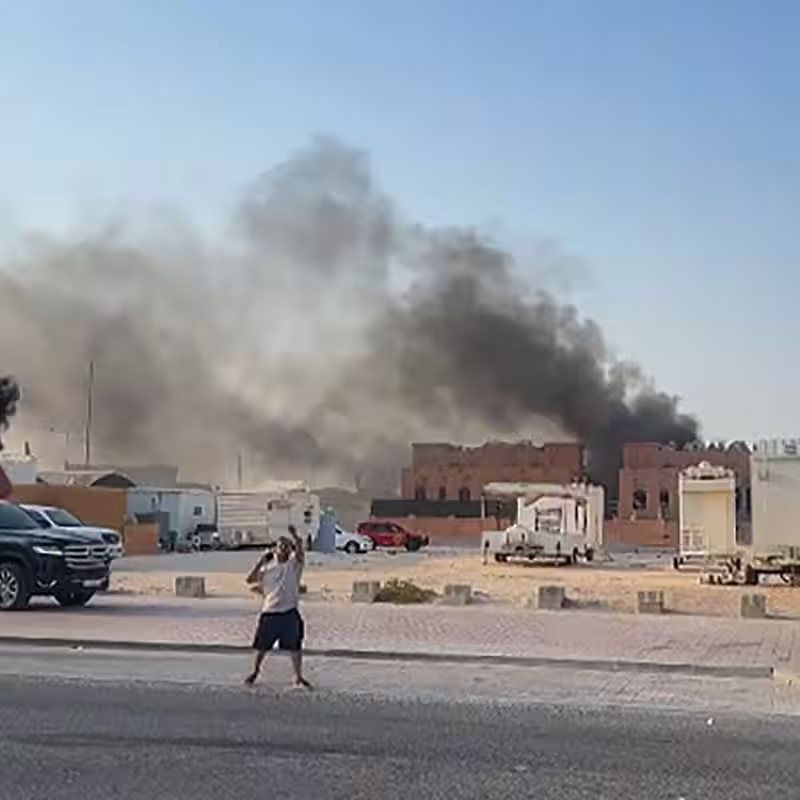In a dramatic twist that’s reverberating across global capitals, former President Donald Trump reportedly unleashed a wave of private pressure on Israeli Prime Minister Benjamin Netanyahu following Israel’s controversial airstrike near Qatar’s capital—a move that sparked international fury and threatened to upend delicate ceasefire negotiations in Gaza.
What Happened in Qatar?
According to The New York Times, Israel conducted an airstrike targeting a Hamas-linked facility in the outskirts of Doha, Qatar—home to key Hamas political leadership and a critical mediator in Gaza ceasefire talks . While no Qatari civilians were reported killed, the strike was widely condemned as a violation of Qatari sovereignty and a dangerous escalation.
Qatar, a U.S. ally and host to the Al Udeid Air Base—the largest American military installation in the Middle East—responded with outrage. The Emir of Qatar summoned the Israeli chargé d’affaires (Israel and Qatar don’t maintain full diplomatic ties) and issued a rare public rebuke .
Trump’s Unexpected Intervention
Enter Donald Trump. Despite being out of office, the former president wields considerable influence within Republican circles and maintains direct lines to foreign leaders, including Netanyahu.
Sources close to Trump revealed that he was “furious” over the Qatar strike, viewing it as reckless and counterproductive to U.S. interests in the region. Within hours, Trump reportedly placed a call to Netanyahu urging him to de-escalate and reaffirm Qatar’s role as a neutral broker .
“He told Bibi this wasn’t just about diplomacy—it was about not burning bridges with America’s partners,” one insider told The Times.
Why Qatar Matters in the Hostage Deal
Qatar has been instrumental in brokering every major Gaza ceasefire agreement since 2023. Alongside Egypt and the U.S., it has facilitated hostage releases, aid deliveries, and backchannel communications between Hamas and Israel .
Alienating Doha risks collapsing the entire negotiation architecture. Without Qatari cooperation, Hamas may refuse to engage, and the fragile hostage deal currently under discussion could unravel.
Netanyahu Under Fire—From All Sides
Netanyahu’s decision to strike in Qatar appears to have backfired politically:
- Domestically: Israeli security officials reportedly warned against the operation, fearing diplomatic fallout.
- Internationally: The U.S. State Department issued a “concerned” statement, while Arab allies expressed alarm.
- From Trump: A rare public-private split, with Trump signaling that such moves undermine American strategy.
Could This Reshape U.S.-Israel Relations?
While the Biden administration has maintained strong support for Israel, Trump’s intervention highlights a growing rift within U.S. political circles over how far Israel can go without consequences.
If Trump wins the 2024 election (note: this is a hypothetical future scenario as of 2025), his stance suggests a more transactional, interest-based approach—where strategic partnerships like the one with Qatar take precedence over unconditional backing of Israeli military actions.
What’s Next for the Hostage Deal?
Despite the Qatar incident, ceasefire talks are reportedly back on track—but with heightened tension. Qatari mediators have demanded written assurances of non-aggression before resuming full coordination.
Meanwhile, Trump’s team is quietly positioning him as a “dealmaker who can keep all parties at the table”—a narrative likely to feature prominently in any 2025–2026 campaign messaging.




